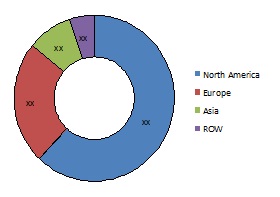Global healthcare cloud computing market worth $5.4 Billion by 2017 expected to increase from $1.8 billion in 2011 to $5.4 billion by 2017.
The “Healthcare Cloud Computing (Clinical, EMR, SaaS, Private, Public, Hybrid) Market – Global Trends, Challenges, Opportunities & Forecasts (2012 – 2017)”, published by MarketsandMarkets, analyzes and studies the major market drivers, restraints, and opportunities in North America, Europe, Asia, and Rest of the World.
Cloud computing offers significant benefits to the healthcare sector; Doctor’s clinics, hospitals, and health clinics require quick access to computing and large storage facilities which are not provided in the traditional settings, moreover healthcare data needs to be shared across various settings and geographies which further burdens the healthcare provider and the patient causing significant delay in treatment and loss of time. Cloud caters to all these requirements thus providing the healthcare organizations an incredible opportunity to improve services to their customers, the patients, to share information more easily than ever before, and improve operational efficiency at the same time.
This report studies the global healthcare cloud computing market over the forecast period 2012-2017.
Cloud technology in healthcare market is segmented by applications, deployment models, service models, pricing models, and components. There are two main types of applications in healthcare:
- Clinical Information Systems (CIS) and Non Clinical Information Systems (NCIS). CIS includes EMR, CPOE, PACS, RIS, LIS, PIS
- NCIS includes Revenue Cycle Management, Automatic Patient Billing, cost accounting, payroll management, and claims management.
The main three deployment models utilized across the healthcare industry include:
- Private cloud
- Public cloud
- Hybrid clouds
Traditionally, the healthcare industry has been slow to adopt the cloud due to its security and regulatory issues. The healthcare cloud market by service models is further classified into the following:
- Software-as-a-Service (SaaS) Examples include GE Healthcare, Practice Fusion, Carestream Health
- Platform-as-a-Service (PaaS)
- Infrastructure-as-a-Service (IaaS)
- Meaningful Use
- ICD-10 Transition
- HITECH/ARRA
Cloud technology has been adopted only in certain regions of the world, the majority share being held by the developed nations. The geographies studied include North America, Europe, Asia, and ROW. North America accounts for the lion’s share in the cloud computing market with U.S. being the largest contributor to this region.
Cloud Computing Healthcare Market Share, By Geography, 2011

Source: MarketsandMarketsAnalysis
The healthcare cloud computing market is a fragmented one with no player occupying a share more than 5%. A few players in this market are CareCloud (U.S.), Carestream Health, Inc. (U.S.), Merge Healthcare, Inc. (U.S.), GE Healthcare (U.K.), and Agfa Healthcare (Belgium).
Click here to order the report.
